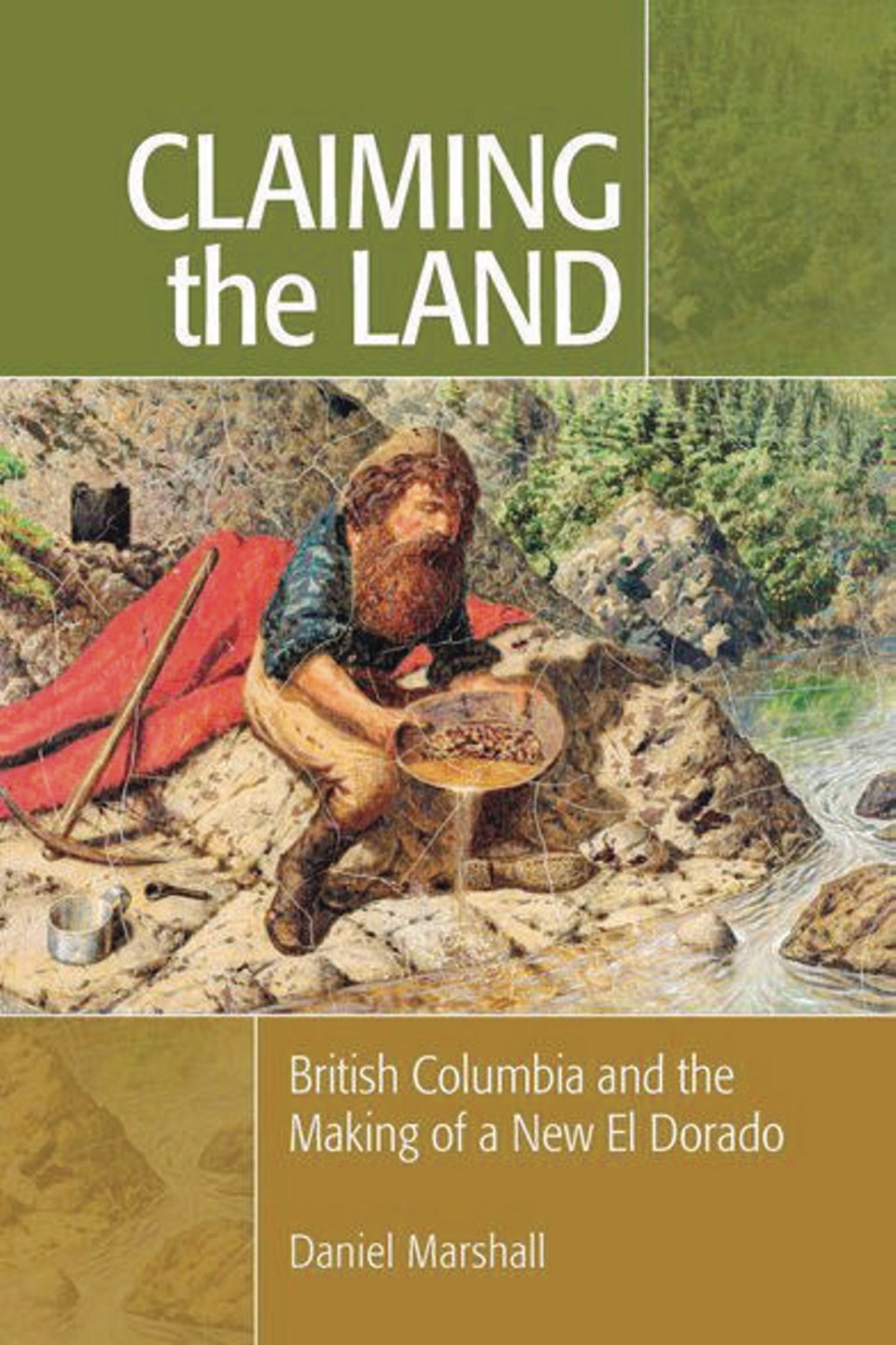Claiming the Land: British Columbia and the Making of a New Eldorado
By Daniel Marshall
Ronsdale Press, 406 pp., $24.95
The 1858 gold rush along the Fraser River helped push Victoria into a real community, rather than just a fort with an adjacent First Nations community, as well as a few optimistic colonists.
Victoria was, after all, the staging area for many of the miners arriving from San Francisco and heading to the gold fields. Their arrival created the need for supplies, which meant that many small fortunes were made by the people who filled that need.
All of that has been well documented over the years. There has been much less concern, however, for the Indigenous inhabitants of British Columbia, the people whose lives were pushed into turmoil because of the lust for gold.
Victoria historian Daniel Marshall helps to correct and clarify the record in this comprehensive, engaging account of the pivotal year of 1858.
 The gold rush brought lasting change to the land that became our province. Driven in large part by Americans, it helped pave the way for the creation of a new colony, and then the acceptance of the region into the Canadian confederation less than a decade later.
The gold rush brought lasting change to the land that became our province. Driven in large part by Americans, it helped pave the way for the creation of a new colony, and then the acceptance of the region into the Canadian confederation less than a decade later.
Canada’s Pacific province could have easily become part of the United States instead. It took strong resolve from Gov. James Douglas and others to ensure that it remained under British control.
The first gold rush in British Columbia came after the big California rush of 1849, and San Francisco had many gold seekers eager for something to do. The discovery on the Fraser River gave them a new destination, and with gold in their minds they flooded north.
It has been proven that Indigenous people were trading in gold before the spring of 1858, when word of gold along the Fraser River reached San Francisco.
Marshall dismisses the common notion of what the rush was all about: The idea that a few thousand men came north, made their way to the gold fields, spent time there as part of one big happy family and headed south again.
It was uglier than that. Chaos reigned as opposing forces wrestled for control of the gold and the land. The border with the United States was porous, to say the least, and it was only rugged terrain that enabled the authorities to prevent the land from being overrun.
It was also, effectively, a lawless territory, similar to the scene in many parts of the western United States at the time. Foreign elements took the law into their own hands, and met little or no opposition. Large areas of the gold fields were in the hands of self-appointed militia groups.
The Indigenous population suffered greatly. Some of the new arrivals were eager to exterminate anyone in their way. There were several serious attempts to do just that, with Indigenous people ambushed and killed. It was war, simply put, and it was waged from the Okanagan Valley to the gold areas along the Fraser. It is shocking that these horrific slaughters are not better known, but Marshall’s efforts might help to correct and expand on common knowledge.
The only way to keep the peace, it seemed, was to set aside reserves for the Indigenous people, so the gold rush of 1858 helped to shape the long-term allocation of land. (Of course, before that land was allocated to the Indigenous population, it was carefully checked to ensure it had no obvious value.)
The gold rush led to the formal creation of the Colony of British Columbia on Nov. 19, 1858. Douglas had already been exerting authority over the region, despite no proper recognition that he could. After all, he was the governor of Vancouver Island, not the Mainland.
The year 1858 is considered the birth of British Columbia, as we know it, but the events of that year have never before been considered as critically and exhaustively as they have been in this book.
Marshall has, in effect, rewritten the pivotal history of the birth of the province and of Victoria. This book will form the basis for further research for years to come.
Dave Obee is the editor and publisher of the Times Colonist.


